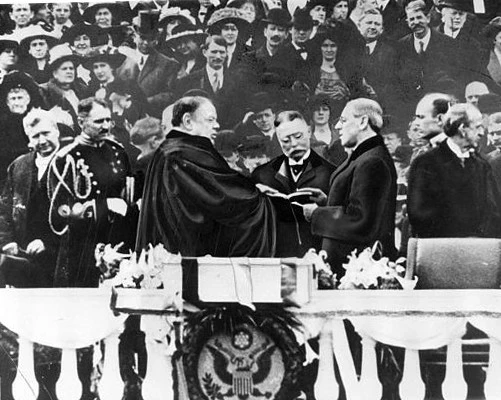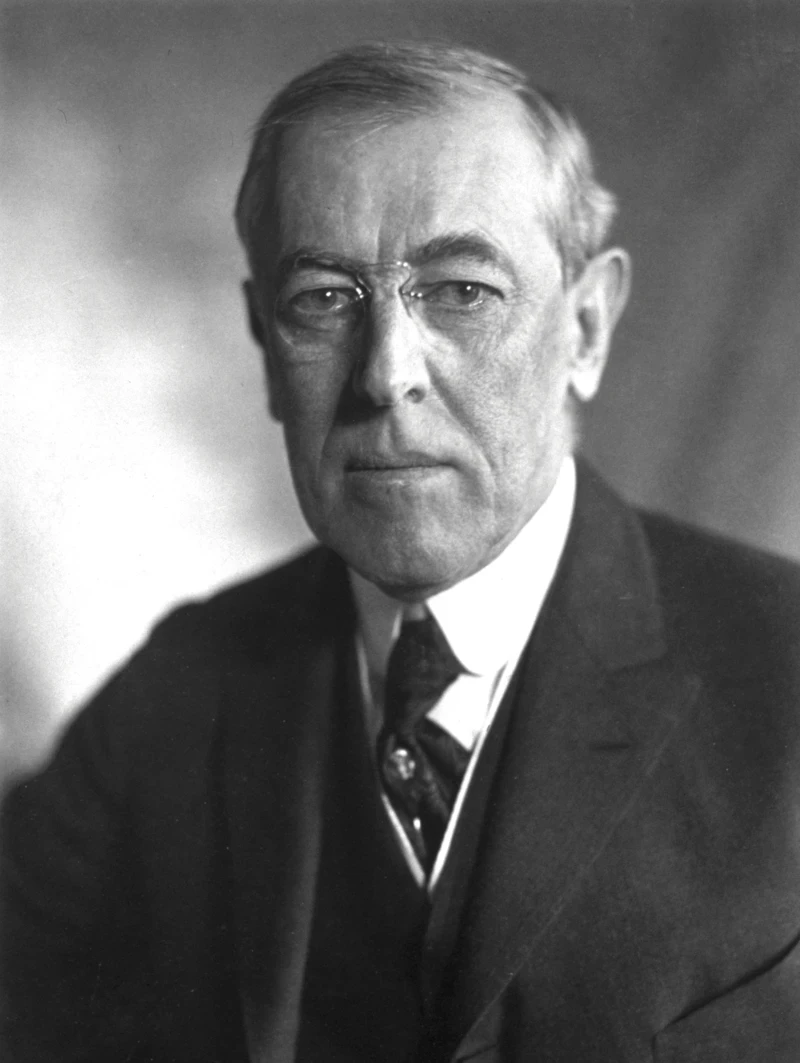In a campaign event at Madison Square Garden in 1912, future President Woodrow Wilson said something that could be considered a mission statement for his life’s work: “There is no cause half so sacred as the cause of a people. There is no idea so uplifting as the idea of the service of humanity.”1 After living a life devoted to the public, both in practice and as a scholar, Wilson was uniquely qualified to discuss matters of public service. Twenty-six years earlier, Wilson had published “The Study of Administration,” an essay that served as the foundation for the study of public administration, and which caused Wilson to be enshrined as the “Father of Public Administration” in the United States.
A Passion for Education
Born in Virginia at the tail end of the Civil War, Wilson demonstrated a well-developed passion for scholarship in his teens, and proved himself adept at logic, rhetoric and composition. In 1875, he enrolled at Princeton University where he got his first taste of administration as the editor of the Princetonian (the school newspaper), the president of the campus baseball association, secretary of the football association and as a member of theatrical productions, the glee club and debate club.2
The Skills to Lead
After his undergraduate education, Wilson pursued law, though his interest laid primarily in politics. However, with his scholarly credentials, he soon found himself teaching political economy and public law at Bryn Mawr College, before accepting a professorship at Wesleyan University. Two years later, in 1892, he accepted a professorship at Princeton where he was a popular, well-liked member of the faculty. 12 years later, he became the president of Princeton, where he was noted for his sweeping administrative changes that doubled the staff of the university while shrinking class sizes and improving instruction. After that, he became governor of New Jersey before finally being elected President of the United States in 1912.2
“The state exists for the sake of society.”
While he was still pursuing his graduate studies, Wilson published “The Study of Administration,” his landmark treatise on public administration. For Wilson, the object of administrative study was “...to discover, first, what government can properly and successfully do, and, secondly, how it can do these proper things with the utmost possible efficiency and the least possible cost either of money or of energy.” In so doing, Wilson laid out four key observations regarding public administration that still form the backbone of the discipline.3
“Administrative questions are not political questions.”
The key observation around which Wilson structured his arguments is the distinction between the political and the administrative. He recognized that while the government sets policy and deals in matters “great and universal,” the administration handles “the activity of the state in individual and small things.” He believed that although policy sets tasks for administration, it is no good to subject the implementation of those tasks to the same forces of public opinion as policy making. Therefore, he was a passionate advocate for the study of public administration, so that the implementation of policy could be undergirded by stable principles.
“The field of administration is a field of business.”
Wilson likened the relationship between policy and administration to the relationship between a machine and the product it manufactures. Given this view of administration, he thus believed that it was best served in a “businesslike” fashion. He spoke of the sanctity of civil service, and envisioned administration as a nonpartisan pursuit, the best to serve all people, regardless of political affiliation.
“Three periods of growth...”
Wilson also identified the three periods of societal growth which eventually result in a mature government with a need for public administration. The first period is defined by absolute rule. Once the citizens of a state rise up to overthrow the absolute rule, they establish a new constitution to do away with absolute rulers and give control of the state back to the people. Finally, the sovereign rule of the people must contend with the need for administration of their new constitution.
“A body of thoroughly trained officials serving during good behavior...”
Above all, in order to conform to his precepts, Wilson believed that civil servants ought to be held to high standards. He believed that the practice of political appointments standard in his day and the patronage system it encouraged were antithetical to the aims of good public administration. Instead, he advocated for a well-educated, committed body of civil servants who advanced due to merit. Only in this way, he thought, could the administrative sphere be properly protected and run in a businesslike, efficient manner to serve all Americans.
The foundational principles of efficiency and ethics laid out by Woodrow Wilson in this landmark treatise are more vital today than ever, as our growing nation faces an ever more complex set of administrative tasks. If you think you’re up to the challenge of being the kind of thoughtful, dedicated civil servant that would make the “Father of Public Administration” proud, consider the online Master of Public Administration program from Kent State University.
Sources:
- Retrieved on August 2, 2018, from wilsoncenter.org/about-woodrow-wilson#famous-quotes
- Retrieved on August 2, 2018, from millercenter.org/president/wilson/life-before-the-presidency
- Retrieved on August 2, 2018, from teachingamericanhistory.org/library/document/the-study-of-administration/







